Stewardship is the “careful and responsible management of something entrusted to one’s care,” according to Merriam-Webster’s Collegiate Dictionary. For purposes of this article, I am referring to the responsible “care” of the people who make planned gifts, rather than the gifts themselves. Planned giving donors, perhaps even more than donors of other types of gifts, expect and deserve nonmonetary benefits such as honoring the intent of the gift, paying attention to the gift process, communicating with the donor after the gift is complete, and sustaining the relationship for the long-term benefit of both the donor and the organization. Sometimes this process is referred to as donor services.
An effective stewardship program includes key components:
• Set goals and standards for donor services, including response mechanisms for inquiries, gift acknowledgement standards, and donor recognition policies. And then follow them consistently.
• Train everyone in the organization in the art of welcoming. The critically important first impression may make the difference between developing a relationship with a prospective donor and never hearing from the prospective donor again, and all callers should be treated as prospective donors.
• Establish a program of continuing communications with donors, especially regarding the investment and use of their gifts. Whenever possible, describe the impact of their gifts on those you serve and the community. Even better, invite them to witness the impact for themselves through a personal visit.
• Find ways to recognize the good stewardship work of staff members. Remember the axiom “you get the behavior you reward.”
The most appropriate ways to honor donors are often simple and personal benefits, customized to the donor’s needs and interests. Communicate to donors how the distributions from their gifts are being used, who has benefited, and how the donor’s goals have been advanced by the gift. This kind of personal communication, directly related to the gift, is greatly appreciated and deepens the donor’s relationship with the organization.
Offer special opportunities to donors such as:
• lunch with the CEO or board chair,
• backstage tours,
• picnics with grantees,
• receptions with the speaker after a lecture, or
• auditing a specific class.
Recognition should be given frequently and in varied formats. Few people object to being thanked or thought about too often.
However, do not assume that everyone wants public recognition—ask the donor first. Some people will appreciate the thought, but not the attention that recognition can engender. People who do not want public recognition or who want to remain anonymous do want to be thanked in appropriate ways and, usually, to be involved with the organization. Just because the donor does not want to be recognized at a public luncheon does not mean that the donor doesn’t want to be taken to lunch by the executive director or the board chair.
For donors who do not decline public recognition, list their names in the annual report or publish, both electronically and on paper, an annual Stewardship Report that summarizes the year’s philanthropic record. Include profiles of donors and of the programs and clients that benefit from the gifts. A recognition plaque can be hung for a special endowment campaign, or one plaque can be used for all endowment or planned gift donors.
Charitable giving involves an exchange relationship in which the donor has certain expectations of the organization. Planned giving donors have made gifts that will support your organization in perpetuity; your organization, in return, has obligations to its donors for the long haul. Remember that the goal of recognition is to meet the donor’s expectations.





